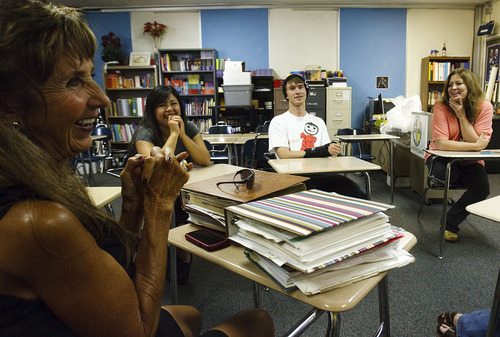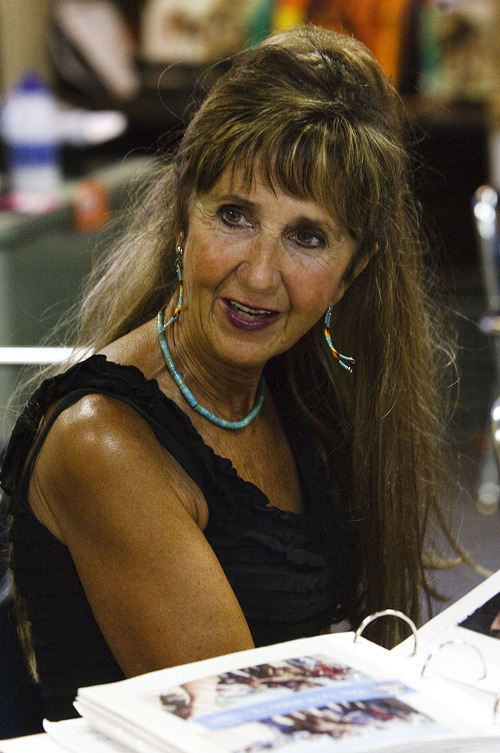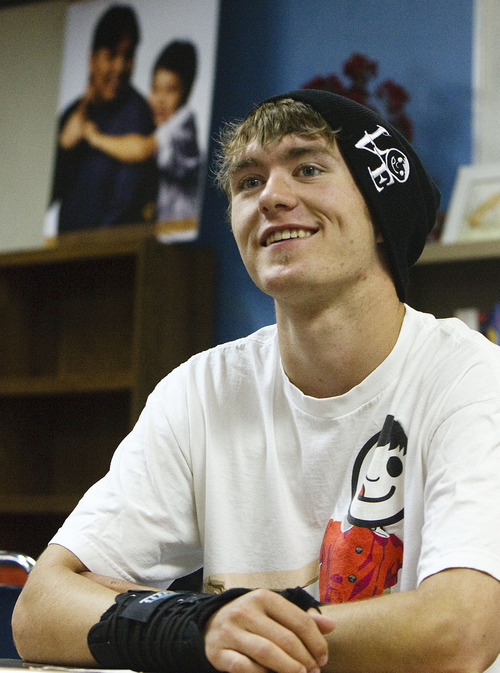This is an archived article that was published on sltrib.com in 2012, and information in the article may be outdated. It is provided only for personal research purposes and may not be reprinted.
Refugee students from Congo, Somalia, Sudan and Nepal who are attending Cottonwood High School don't always share stories about their own heritage while immersing themselves in the ways of the American school system.
It's a conundrum social worker Chris Mockli, who works with refugee students in the Granite School District, wanted to solve by finding a way to encourage students from other parts of the world to teach classmates about the unique aspects of their cultures.
So Mockli, along with other educators who work with the school's 320 English language learners (ELL), brainstormed an idea to form a cultural exchange with students on the Uintah and Ouray Reservation of the Ute Tribe, in the Uintah Basin 150 miles east of Salt Lake City.
About 50 of Mockli's students recently visited the reservation near Fort Duchesne, where they learned about the history of the Ute Tribe and took part in an annual tradition called the "Bear Dance."
Students watched as tribe members played traditional music meant to imitate the growling of a bear emerging from hibernation. But soon, the Cottonwood refugee students got to give tribe members a taste of their own cultural traditions.
From the hip-shaking of Somali students' dance to the tranquil sway of Tongan hula dancers, students and tribe members were captivated by the diverse dances, said Mockli.
"It's about cultural exchange and service learning. It's about learning from one another," she said. "Some of the refugees students have lived in camps their whole lives. Some haven't had school and had no idea there were tribes in Utah. They didn't have any ideas about the Utes or who they were."
To help bring the cultural experience to other students at Cottonwood High, senior Landon Hale shot a documentary of the trip. His film, "Bridging Community," was given to students who went on the trip and shown to others.
After spending the school year serving as a teacher's assistant in an ELL class, Hale said he enjoyed traveling to Fort Duchesne to see his refugee classmates share their worlds with Ute members.
"Everybody was friendly to everybody. That was the best part," said Hale.
Mockli said she is optimistic that students from the Ute Tribe may be able to visit Cottonwood Heights in the fall, keeping the cultural exchange alive into next school year.
Several Cottonwood Heights students who participated in the field trip also performed as part of the school's "Circle of Friends" dance troupe at other events, she said.
Students gave presentations at various schools including Moss, David Gourley and Pleasant Green elementaries, and Kearns High School. They also appeared at a nursing home and a conference for refugees.
Mockli said performing is a way for the refugee students to find their place in a school activity that appeals to them.
"The students come alive and shine when they share their cultures through music, song, dances and the drums. The social skills they gain are so valuable in building resiliency," she said.
Twitter: @mrogers_trib







